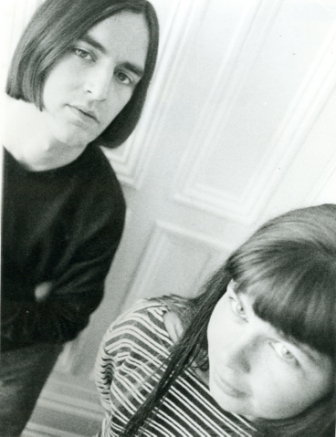Despite playing a very similar game—spitting verses over beats and telling stories in rhyme—Seattle MCs D. Black and Locke couldn’t be more different. D. Black, 20, was born in Seattle and grew up around the Rainier Valley, living the kind of life in this city we rarely ever hear about. Raised in Spokane, Locke, 26, moved to Seattle 18 months ago, and has called Ballard home ever since. D. Black was literally born into hip-hop (his father was a founder of Seattle’s first rap group, the Emerald Street Boys; his mother was a member of the Emerald Street Girls). Locke was 18 when he found his hip-hop voice after years of being immersed in Spokane’s punk-rock and hardcore scenes.
A co-CEO of Sportn’ Life Records with a well-received debut (2006’s The Cause & Effect) under his belt, D. Black is one of the city’s strongest players. Locke is still a newbie, though he has managed to make himself and his music known—he hosts a hip-hop night at the Sunset Tavern, and his forthcoming full-length, Close to Home, will be released on local indie Go Midnight in early ’08.
We sat down with D. Black and Locke to discuss their disparate pasts, the city of Seattle, and the thriving local hip-hop scene.
On Getting Into Hip-Hop:
D. Black: I was born into it, really. I’ve been doing it ever since I could talk. It wasn’t the greatest start, but I was 8 when I got my first beat machine, a Roland Groovebox. I started rapping to the demos on it. I had a karaoke machine set up—I thought I had a studio, but I didn’t have a studio. But you couldn’t tell me no different back then.
Locke: I just kind of started when I was a teenager, rapping with my friends. We got some beat tapes and some instrumentals; we’d get together on Friday nights and hang around and all try to rap and see what happens. Nothing quite as illustrious as having rap in my blood like [Black].
On Becoming Part of the Scene:
Locke: It’s been kind of a struggle to get my foot in the door, but it’s not like I don’t think that that’s how it would be in any other big city. You go to any big city, you’re going to have to pay your dues; you’re going to have to work. That’s just how it is. People don’t know who you are. No huge town with a thriving hip-hop scene is going to open up and put you on a show every month. It’s just how it is. And that’s kind of the nature of hip-hop.
D. Black: You gotta prove yourself.
On Their Styles:
Locke: I have songs that have got a little more grit and emotion to them, but I definitely like the fun stuff.
D. Black: I’m not what they call “conscious,” but to me it’s conscious. I’m being conscious of my environment. I hate being called a gangster.
On the Other Side of Seattle:
D. Black: A lot of people are like, “Seattle don’t have no ghetto,” or, “Seattle don’t have no streets.” It’s easier for you to say when you’re not involved in that. Seattle has taken the turmoil and all the bad and not-so-beautiful things and covered them up to make it seem like everything is peaches ‘n’ cream. I wanted to display this other side that doesn’t get touched. Cause & Effect comes from what I saw, the things I was involved in, just speaking from experiences as the young black male growing up. As much as I’ve seen wrong, I’ve seen good. I seen so many things. I witnessed people get shot, I witnessed people die.
On Their Next Moves:
D. Black: My second record, The Life and Legacy, it’s pretty self-explanatory—the life and legacy of D. Black. I wanted to speak out more. Over the last year and a half, so many things have changed. I’ve expanded, I’ve seen different things, I’ve been treated different; I feel like I’ve been more exposed. I want to talk more on this record. I want to let everyone know I’m not a gangster.
Locke: [My album’s] called Close to Home. I still feel like I’m gone from my home, but trying to find a new home here, and still feeling like my heart is in that place. [It’s about] just feeling closer when you are away.
On America’s next hip-hop hub:
D. Black: [Seattle is] one of the big cities that haven’t hit yet. I feel like you gotta start at home. I don’t want to go to Atlanta or L.A. It’s great to do shows and reach out to there, but I don’t want to go there for my career to flourish. I can do it at home. I feel like it starts at home; you get the city behind us—that’s where it all begins.






